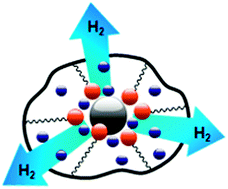In situ generation of resin-supported Pd nanoparticles under mild catalytic conditions: a green route to highly efficient, reusable hydrogenation catalysts†
Abstract
This paper reports a simple one-pot strategy for the synthesis of solid-supported Pd


 Please wait while we load your content...
Please wait while we load your content...